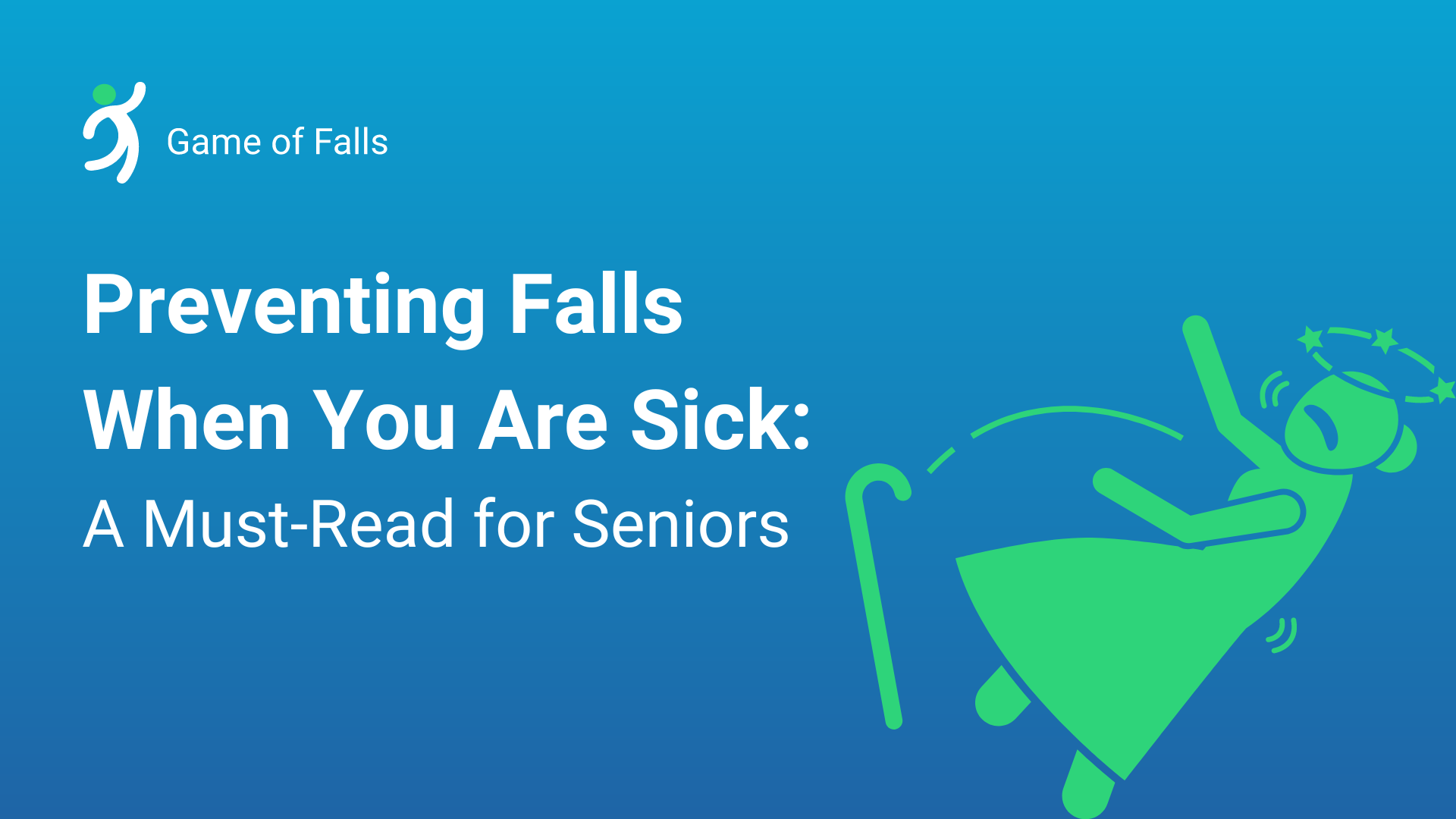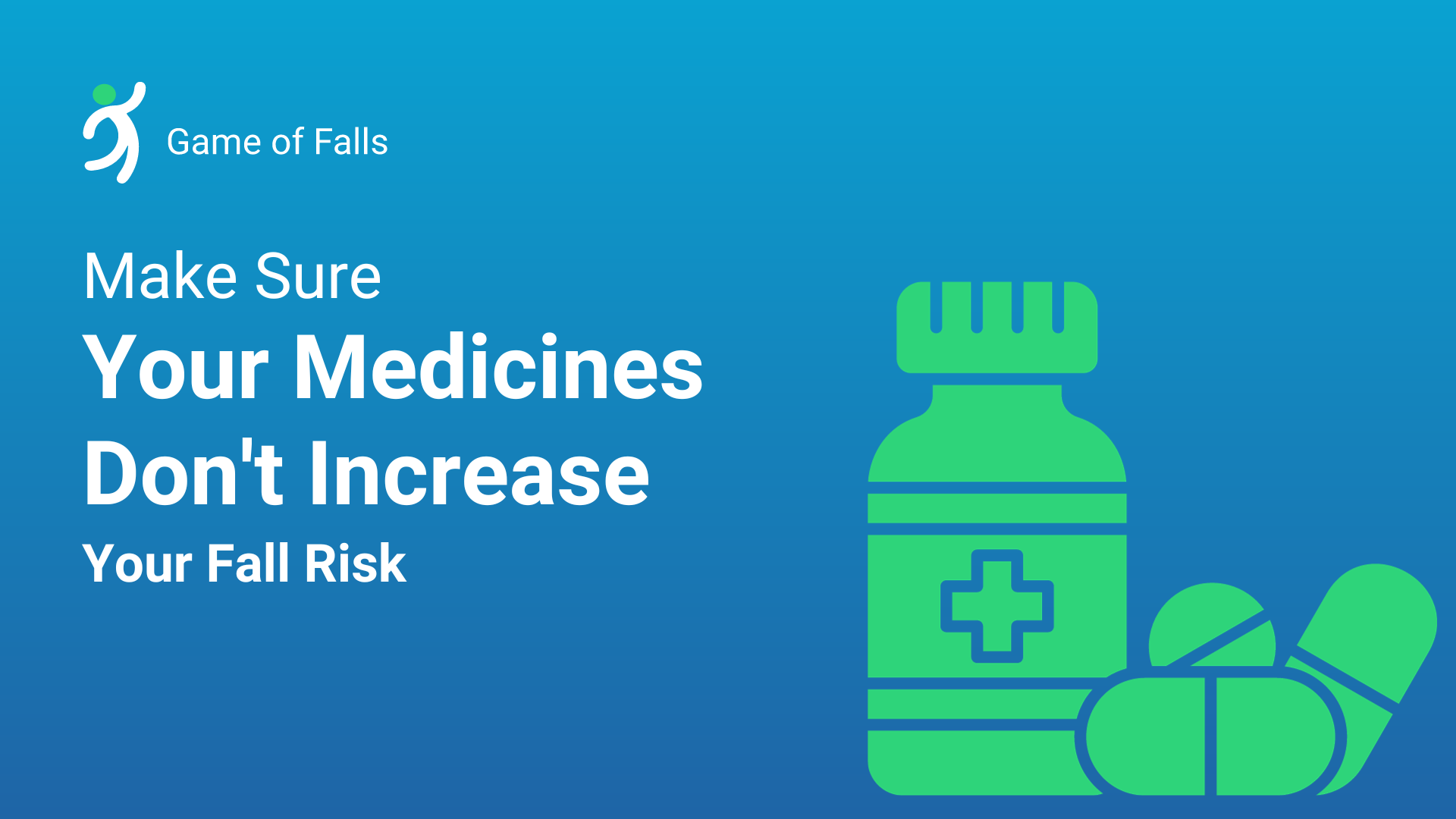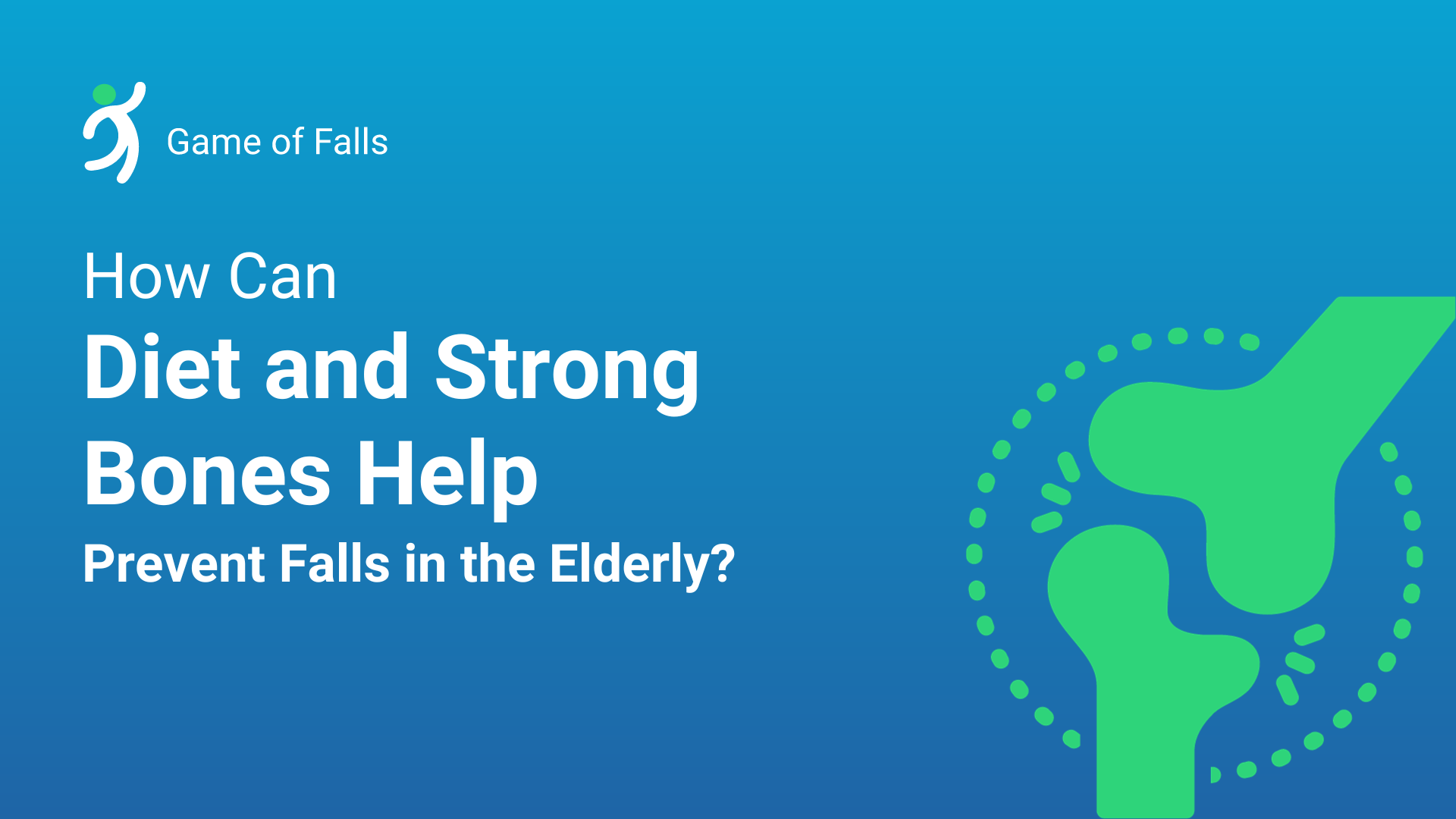
The adage ‘You are what you eat’ holds even more significance as we age.
Age related bone loss is a continuous process and can result in osteoporosis. Around 10 million individuals over the age of 50 in the US are living with osteoporosis, and an additional 34 million are at risk of developing the disease.
Osteoporosis, defined by reduced bone mass and quality, increases the likelihood of severe and sometimes life-threatening fractures.
Individuals who suffer from low-impact fractures due to osteoporosis have a significantly higher mortality risk compared to those without osteoporosis, a risk that continues for several years after the fracture. However, with proper diet and nutrition you can maintain strong bones which helps in preventing falls in the elderly. How to keep bones strong in old age? Let’s check it out!
Understanding the Link Between Nutrition and Bone Health
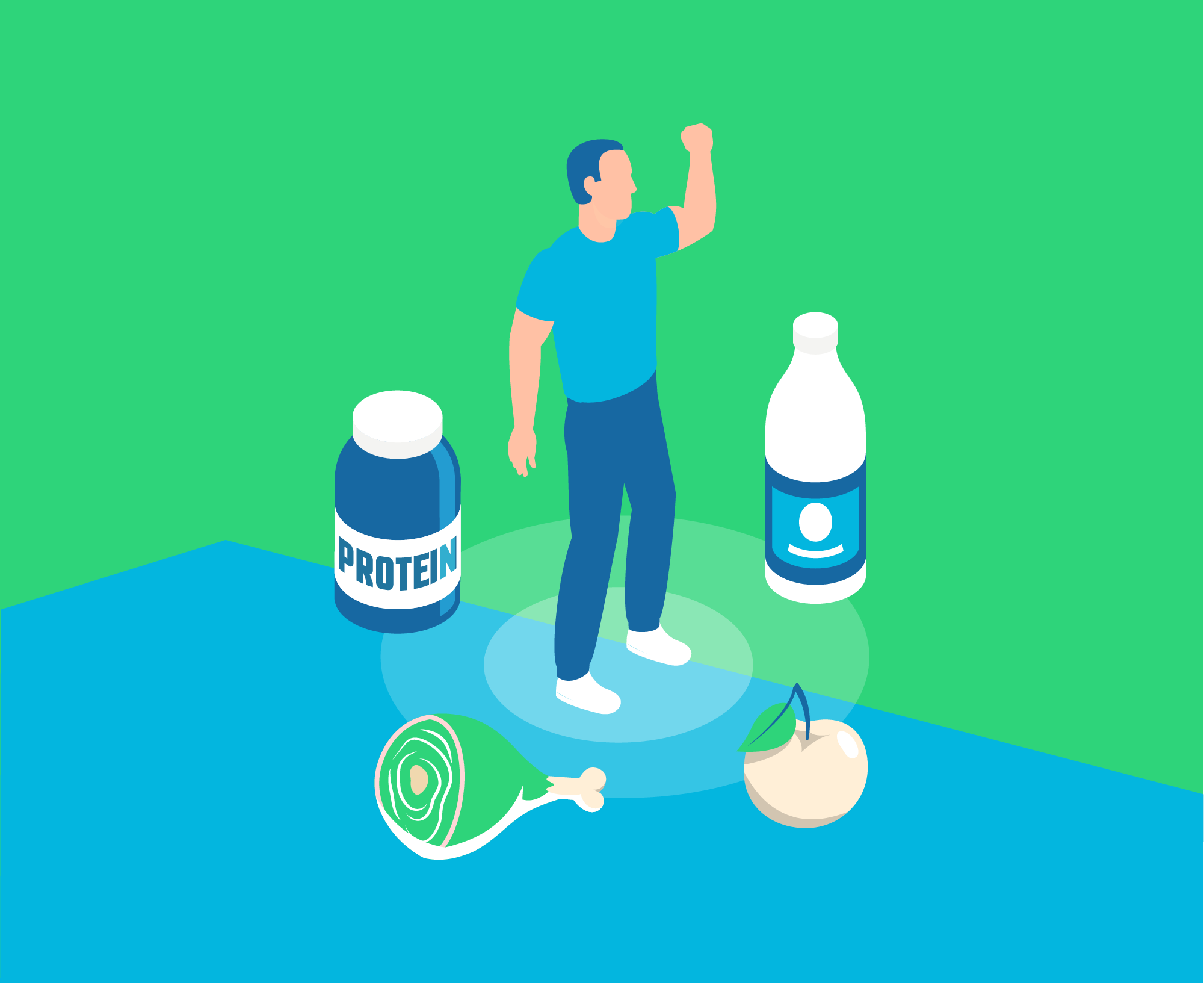
Diet and strong bones in the elderly are interconnected. Inadequate nutrition in old age can increase your risk of falls, especially as you age. Did you know over 90% of hip fractures in elderly Americans are caused by falls?
It’s common for older adults to have insufficient dietary protein and vitamin D intake. Diets lacking in these essential nutrients can lead to a decrease in muscle mass, strength, and coordination, thereby heightening the risk of falls. Recent studies suggest that a combination of vitamin D and calcium can enhance muscle strength, and prevent bone loss and osteoporosis, thereby preventing falls in the elderly.
As a result, it becomes crucial to ensure sufficient intake of calcium and vitamin D to maintain robust bones and muscles.
To evaluate your nutrition and bone health, ask yourself:
- Have I experienced unintentional weight loss recently?
- Am I diagnosed with osteoporosis?
- Do I often have a poor appetite?
- Do I need help with grocery shopping or meal preparation?
- Do I consume less than three servings of calcium-rich foods daily?
If you answered ‘yes’ to any of these questions, it’s crucial to discuss these concerns with a healthcare professional or a family member.
Building Strong Bones Through Diet: A Guide for the Elderly

A well-balanced diet is crucial for maintaining strong bones and preventing falls in the elderly. Certain foods are particularly beneficial for bone health due to their high nutrient content which can play a role in preventing falls.
| Food | Nutrient |
| Dairy products like low-fat milk, yogurt, and cheese | Rich in calcium and Vitamin D – key nutrients for bone health and strength. |
| Fish, like canned sardines and salmon with bones | sources of calcium |
| Fatty fish varieties such as salmon, mackerel, tuna, and sardines | Rich in Vitamin D |
Fruits and vegetables are another essential part of a bone-healthy diet.
| Food | Nutrient |
| Leafy greens like collard greens, turnip greens, kale, okra, Chinese cabbage, dandelion greens, mustard greens, and broccoli | Packed with calcium |
| Spinach, beet greens, okra, tomatoes, artichokes, plantains, potatoes, sweet potatoes, prunes, and raisins | Rich in magnesium and potassium |
Certain fortified foods also do wonders!
| Food | Nutrient |
| Juices, breakfast foods, soy milk, rice milk, cereals, snacks, and breads | Enhanced with calcium and Vitamin D |
| Olive oil, soybeans, blueberries, and foods rich in omega-3s, like fish oil and flaxseed oil | Have bone-boosting benefits |
Moderate intake of certain alcoholic and non-alcoholic beverages like wine, beer, and tea may also be beneficial for bone health which can help prevent falls.
Foods to Avoid

While diet and strong bones help prevent falls in elderly, not all foods are beneficial for bone health. There are certain foods to avoid for bone health.
- Foods high in phytates, like beans, can interfere with calcium absorption.
- High protein foods, salty foods, foods high in oxalates, and wheat bran can also negatively impact bone health.
- Alcohol and caffeine can contribute to bone loss, so it’s important to consume these in moderation.
- Some studies suggest that colas may also be associated with bone loss due to their caffeine and phosphorous content.
The Role of Exercise in Strengthening Bones
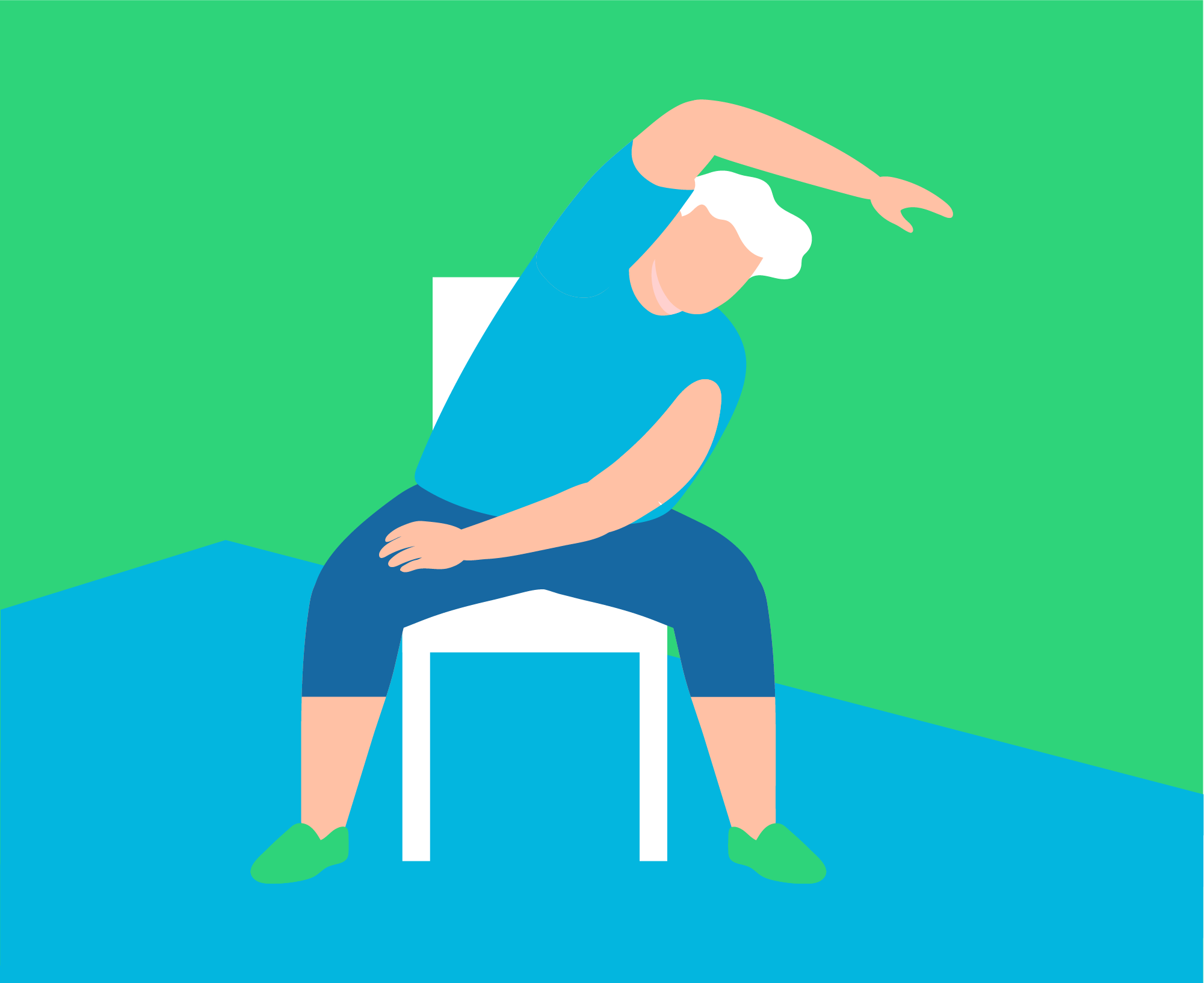
Now that you know about what foods to avoid to strengthen bone health in older adults, let’s look at exercise for the elderly.
Exercise is crucial in preventing falls in the elderly and building and maintaining bone density, particularly weight-bearing and resistance exercises.
For bone health in older adults, weight-bearing exercises, such as walking, jogging, and climbing stairs, force you to work against gravity, stimulating bone cells and promoting bone density.
Resistance exercises, on the other hand, involve activities that use muscular strength, like lifting weights or doing push-ups. These exercises apply pressure on the bones, which responds by building more bone cells, thus increasing bone mass.
For the elderly, it’s important to choose exercises that are safe and effective. Walking is a great weight-bearing exercise that is easy on the joints.
Light weight lifting, using resistance bands, and exercises like yoga or Pilates can also be beneficial. However, it’s always important to consult with a healthcare professional before starting any new exercise regimen.
The Impact of Falls on the Elderly
Falls can have serious consequences for the elderly, often leading to fractures and other injuries. Hip fractures in the elderly are particularly common and can significantly impact an individual’s ability to live independently. The recovery period can be long and challenging, often requiring physical therapy and assistance with daily activities.
Moreover, the impact of falls on the elderly can instill a fear of falling which can lead to decreased physical activity. This can further reduce mobility and increase the risk of future falls. This can create a cycle of fear and inactivity, leading to further loss of independence. Therefore, it’s crucial to take steps to prevent falls in the elderly, such as maintaining strong bones through proper nutrition and regular exercise.
Practical Tips to Incorporate into Your Diet and Exercise

Preventing falls in the elderly is a crucial aspect of maintaining their health and quality of life. Here’s how diet and exercise can play a significant role:
1. Stay Active
Lack of physical activity can lead to muscle and bone weakness, increasing the risk of osteoporosis, falls, and fractures.
2. Moderate-Intensity Exercise
Seniors should aim for 150 minutes of moderate-intensity exercise weekly. This could be spread throughout the day and built up gradually. Moderate activity will increase your heart rate, make you breathe faster, and feel warmer.
3. Strength-Building Activities
Incorporating strength-building activities into your routine at least twice a week can help. This could include lifting weights, dancing, carrying groceries, climbing stairs, or heavy gardening.
4. Balance and Flexibility
Activities that improve balance and flexibility, like yoga or tai chi, can reduce the risk of falling.
5. Healthy Eating
A balanced diet rich in calcium, vitamin D, and protein is essential for maintaining healthy muscles and bones which helps in preventing falls in the elderly.
6. Vitamin D
Vitamin D is crucial for strong muscles and healthy bones. Consider taking a daily vitamin D supplement, especially during winter months or if you’re not often exposed to the sun.
7. Other Protective Measures
Quitting smoking, reducing alcohol intake, regular eye and hearing checks, foot care, medicine review, and making your home safer can all contribute to preventing falls and fractures.You can also try playing Game of Falls, an interactive app that identifies risks that lead to falls.
Remember, it’s important not to stop taking any medication without consulting a healthcare professional.
Prevention is better than cure
Maintaining strong bones and a balanced diet plays a pivotal role in preventing falls in the elderly. If you’re wondering how to strengthen bones and joints naturally, adequate intake of essential nutrients like calcium and vitamin D, coupled with regular weight-bearing and resistance exercises, can significantly enhance bone strength and density. This not only reduces the risk of osteoporosis but also minimizes the chances of debilitating fractures resulting from falls.
Falls can have severe consequences for the elderly, often leading to a loss of independence and a decreased quality of life. Therefore, it’s crucial to take proactive steps toward maintaining bone health and overall well-being. This includes regular health check-ups, maintaining a balanced diet, engaging in suitable exercises, and creating a safe living environment.
So if you’re wondering how to keep bones strong after 60 or how to strengthen bones as you age, remember, it’s never too late to start taking care of your bones. Every step taken towards better bone health is a step towards preventing falls in the elderly and a healthier, safer, and more independent life in your golden years.
As flu season turns up the dial, one question often comes to mind: Why does the flu hit older adults so hard? It’s a perfect storm where senior flu prevention becomes key since their natural aging nudges immune systems into a less active state, amplifying the impact of flu symptoms. For caregivers, ensuring flu season […]
Confidence is a crucial ingredient in living a fulfilling and independent life, especially for seniors. So, what happens when an event like a fall shakes the very foundation of a person’s confidence, particularly in the elderly? After a fall, it’s natural for seniors to feel vulnerable and apprehensive about engaging in their everyday activities. Fear […]
Have you considered that growing older might mean getting better, so long as you nurture the one body you’ve been given? Staying active is a dynamic part of aging, and a key aspect of that is utilizing preventive health screenings to catch problems early. The good news is that Medicare and most health plans cover […]
Did you know that the medicines meant to ensure your health could also increase your chances of a fall? It’s a startling thought, but true for many older adults. As we age, we often become, rather ironically, a walking pharmacy. With every pill we swallow to keep our health conditions in check, there lies an […]

